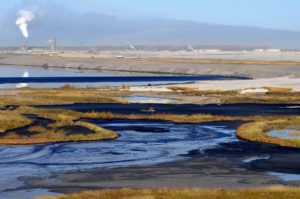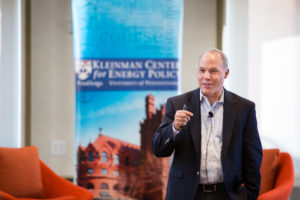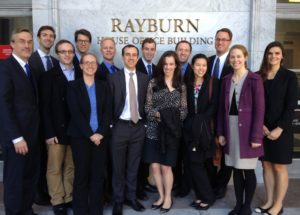The Misguided Regulatory Accountability Act
Bill aimed at regulatory reform would reintroduce burdensome administrative requirements.
Achieving Climate Change Goals Without the Clean Power Plan
Scholars argue EPA may already have the tools it needs to effectively regulate greenhouse gases.
The Impact of Waiving Environmental Regulations
Recent PPR seminar examines effects on air quality and fuel prices from waiving environmental regulations.
Restoring Pollution Prevention and the Concept of Positive Freedom
Scholar espouses a renewed focus on pollution prevention efforts, with an appreciation of government’s ability to effect meaningful reform.
Valuing a Ton of Particulate Matter
What is the cost of emitting soot into the atmosphere? The answer is unclear, yet it plays an important role in policymaking.
Joint Rulemaking Aims to Green the Trucking Industry
New standards for heavy-duty trucks are expected to reduce emissions and allow the industry to keep on truckin’.
An Education in Regulatory Reform
Penn Law students met with experts in Washington to discuss proposals for reforming the regulatory process.
The Regional Reality of Federal Regulation
Penn Law students learn about adjudication and regional enforcement of regulations.
How OSHA Can Succeed with the Cards It Is Dealt
Despite its wide-ranging capabilities, OSHA has often let its detractors have their way. To combat this, it should enlist partners in all directions.
LA Cracks Down on “Unreasonable” Water Use
City ordinance amendment institutes harsher penalties for those who flout water restrictions amid drought.
If We Can Fix TSCA, We Can Fix the OSH Act
President Obama recently signed toxics reform; now it is time to fix workplace safety law, too.
Is Quantified Cost-Benefit Analysis a Requirement for Rulemaking?
Administrative law expert explores whether agencies must always use numbers to justify new rules.












